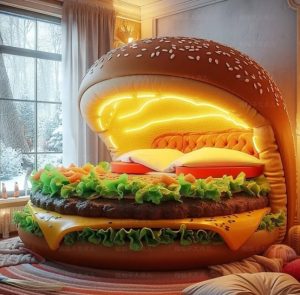
In modern society, the problem of excess weight is increasingly going beyond eating habits and lifestyle. It has a deep psychological foundation. Psychosomatics considers the body not only as a biological system, but also as a mirror of the psyche. And very often behind each kilogram there is an unlived emotion, pain or need that a person could not satisfy otherwise than through food.
Why do we gain excess weight?
Excess weight is not just the result of overeating. It is often a symptom of a mental conflict that the body copes with as best it can.
The main psychoemotional causes of weight gain:
Protection
The body creates “armor” – a physical shell to protect a person from the outside world, danger, painful contacts. This is often observed after violence or humiliation.
Deficit of love

When there is not enough warmth, tenderness, support – a person seeks these sensations in food. Sweets are associated with love, satiety with safety.
Fear of sexuality or attractiveness
Subconsciously, the body “hides” itself to avoid attention. This is often formed after a traumatic experience.
Self-punishment, guilt
Unconscious desire to suffer or punish yourself through the body: “I don’t deserve to be slim”, “I’m bad – I have no right to like myself.”
Stress, anxiety, fatigue
In a state of chronic tension, the brain searches for fast dopamine and finds it in food. This is how the “emotional eating” strategy is formed.
What is emotional eating?
Emotional eating is eating food not to satisfy physiological hunger, but to muffle or avoid emotions.
How to recognize psychological (non-physical) hunger:
Emotional hunger Physical hunger
Appears suddenly Increases gradually
Requires a specific product Any food is suitable
Does not go away even after eating Satiety after eating
Often accompanied by guilt A feeling of satisfaction and peace
Comes “from the head”, not from the body Leaves from the stomach, from the body
How to change the strategy: from “I eat” to “when I’m hungry”
Changing the habit of eating emotions is not about willpower, but about rethinking and new reactions to emotions.
1. Ask yourself: “Is this hunger or emotion?”
Ask yourself 3 questions:
Am I really physically hungry?
What am I feeling right now?
How can I take care of myself besides food?
2. Use the STOP-BREATHE-CHOICE rule
Before eating: stop for a few seconds, take a few deep breaths, acknowledge the emotion, and then choose an action.
3. Create a list of alternatives to eating
A warm shower
A walk
A call to a loved one
Creative activity
Yoga, breathing exercises
This helps teach the brain new ways to regulate emotions.
How to eliminate the self-blame strategy?
Many people feel shame and anger at themselves after an episode of emotional overeating. This only perpetuates the cycle: emotion → food → guilt → even more food.
What to do:
Notice your internal dialogue
Instead of “I am weak,” say:
“I am learning something new. It is difficult for me, but I am already on my way.”
Reframe accusations as support
“I broke down” → “I tried to console myself. I am looking for a better way.”
“I won’t change” → “I take small steps every day.”
Treat yourself like a friend
Ask yourself:
“If this were my friend, what would I say to her?”
And say it – to yourself.
Homework: “All my addictions to food” This will help you find the right path.
This is a written exercise for self-observation. Its essence is to see what exactly food replaces in your life.
Instructions:
Fill in the sentence:
Food for me is…
I eat when I feel…
After overeating, I usually…
I want instead of food to support me…
Food helps me not to feel…
I am afraid that without food I will be…
Then:
Underline the key emotions or needs. Make a list of things that can satisfy these needs without food. Hang this list in a visible place. This is your emotional first aid kit.
In conclusion
Excess weight is not a fault. This is the language of your body, which demands attention, acceptance and care.
Emotional eating is not a weakness. It is an attempt to survive when other mechanisms are unavailable.
And the inner critic is an echo of old stories that you can rewrite.
Change does not begin with a diet, but with the question:
“What am I feeling?” “What do I really need?” “How can I take care of myself?”
When sympathy appears instead of blame,
and presence and understanding instead of food, your body gradually lets go of what is no longer needed – extra pounds, old strategies, pain. And then you become not just lighter. You become – freer.
Crisis psychologist Elena Maibozhenko
Addition information:
Leave your email
and we will contact you soon